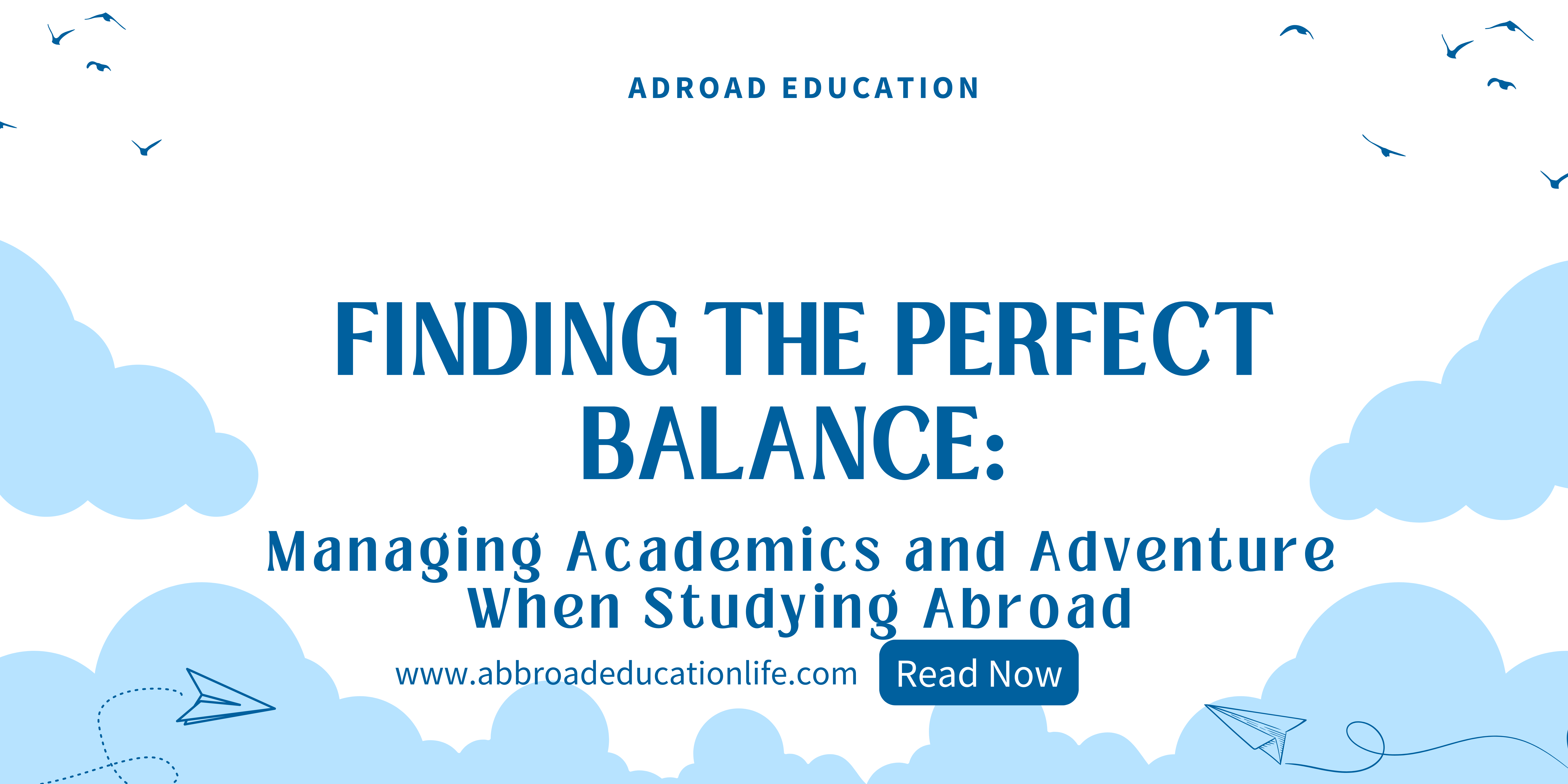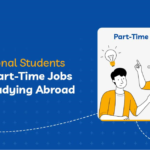Finding Balance: Managing Academics and Adventure When Studying Abroad
Studying abroad is an exciting experience for students that promises much more than a sound academic education. In addition to learning from your program, you will get to discover new cultures, landscapes, and experiences. Here, one finds it hard to live up to rigid academic responsibilities as they merge with adventure. The key to maximizing one’s study abroad experience is to strike the best balance between one’s academic responsibilities and one’s dallying around. This full guide will help you balance effectively and stay in school while adventuring for a rewarding and successful journey.
1. Prioritize and Use Your Time Wisely
A. Develop a Structured Schedule
The need to strike a balance between academics and adventure calls for a well-structured schedule. Start by making a weekly timetable that can accommodate your class schedule, study sessions, and personal time. Allocate time blocks for academic work and time to explore such that each does not overshadow the other. Ensure you keep up with deadlines, activities, and events using tools like digital calendars or planner apps.
B. Setting Clear Objectives
Set clear academic and personal goals for your study abroad experience. Define what you want to achieve academically and the adventures that you want to engage in. The act of goal setting will help one to keep focused and motivated, giving a sense of direction and purpose.
C. Use Time Management Techniques
Utilize some of these time management ideas- Pomodoro Technique, time blocking, etc., to be successful in your courses. If you can focus during study sessions, you will have more free time to explore your host city and other nearby destinations.
2. Weave Scholarship with the Local Culture
A. Utilize Cultural Resources for Scholarship
Immerse local cultural experiences into your academic journey. Participate in some local events, festivals, or workshops related to the field of study. For instance, if you are studying the history of arts, local art galleries and museums are worth visiting. This kind of integration should not be the sole part of your academic knowledge but also contribute to cultural expertise.
B. Engage in Local Research Opportunities
Look for research opportunities and academic projects concerning the host country specifically. Engaging in local research, internships, or any other opportunity can allow you to receive invaluable insights and, therefore, enhance your academic experiences and also explore the culture locally.
C. Connect with Local Academic Communities
Build some contacts among local students and academics. Join study groups, attend academic conferences, or become part of university clubs. This type of networking will enrich your learning with a local perspective, while also helping to maintain your proper balance between academic goals and adventure goals.
3. Stay Organized and On Top of Deadlines
A. Use Organizational Tools
To do that, keep track of all your assignments, exams, and deadlines. By following this principle, you will be able to stay current with all your academic duties and be able to avoid stress at the last minute. Common tools students usually use to keep themselves organized are task management apps, digital planners, and academic calendars.
B. Prioritize Tasks
Prioritize your tasks according to deadlines and importance. Start with your high-priority academic tasks so that you are free to indulge in the adventures without a guilty conscience. Learn to break your major tasks into manageable bits to eliminate elements of the overwhelming nature of such tasks.
C. Avoid Procrastination
Procrastination will ruin all your plans and simply stress you out in the process. Plan a program of revision, studies, and relaxation, and then take heed not to leave everything to the last moment by cramming or finishing all your assignments in a rush.
4. Adopt Effective Study Techniques
A. Create an Optimal Study Environment
Design an environment for effective study that is stress-free and distraction-free. Your study area should be well-lit, and you should have all your study materials at hand. Consider local libraries or cafes to mix it up and get the feel of your host city.
B. Use Active Learning Techniques
Use active learning techniques: Summarize information, teach someone else, or join in on a discussion, to better retain academic material. Active learning aids in making study sessions quite interactive and effective.
C. Make Use of University Resources
Most universities offer resources such as academic advising, tutoring services, and writing centers. Take advantage of these resources to seek help, clear your doubts, and achieve excellence in academics so that you are left with more time for exploration.
5. Healthy Lifestyle
a. Personal Care
For a sustainable balance between academic and adventure life, one should lead a healthy lifestyle. Consider the importance of self-care uptakes: having enough sleep, eating a well-balanced diet, and hydration. Take time to engage in physical activities like jogging and occasionally being part of a local team in any sport to increase energy and remain healthy. b. Effective Stress Management
Maintain Equilibrium We must manage stress in healthy ways. Develop relaxation techniques such as mindfulness, meditation, or yoga, which make you react to stressors better with more ease and clarity of mind. When you regularly practice this, you will be able to pay attention and have the energy to ace doing more.
C. Seek Support As Needed
Do not hesitate to ask for help once things are too overwhelming to manage. Seek university counseling services, mentors, or support groups. A support structure that is around us for guidance and encouragement can keep us moving through the factors challenging to balance.
B. Take Breaks On A Schedule
Schedule regular weekends or days off to explore your host city and the environment. Quick weekend getaways or day trips may help to rest one’s mind from schoolwork pressure and allow the traveler to find new experiences in a different location and culture.
B. Be Spontaneous
While planning is key, do not leave out the aspect of spontaneity. Follow through on the impulse to step out and explore, whether it is local storytelling, new activities, or spur-of-the-moment trips. It is in such spur-of-the-moment activities that the most memorable moments and discoveries tend to happen.
C. Document Your Adventures
Keep a travel journal or blog for your experiences and thoughts. Recording these experiences will help you appreciate your journey and, perhaps, share this story with other students. It also provides a creative outlet and a means of looking back on the study abroad experience.
7. Keeping the Balance between Social Life and Academics
A. Get Involved Socially
Engage with the social life on campus either through social clubs or off-campus through friends in the locality or fellow international students. A good social life will improve your overall experience and assist you in forging bonds with your peers.
B. Setting Boundaries
Creating a social life comes with setting boundaries. Having a social life is indispensable, but ensure that this does not conflict with your study hours or academics. Make your timetable known to your friends and set their expectations right.
C. Get a Support Group
Get surrounded by a team of like-minded peers supportive of your education and academic goals when abroad. Meeting people with similar academic and adventure interests will push you through.
Conclusion
Balancing the elements of academics and adventure when studying abroad should be done through effective preparation, which includes time management and self-care planning. Organize your time well and try to keep it such that cultural activities are integrated into your program of study. Live healthily and do not let diversions come your way. Follow these tips to keep up with your studies while you continue to explore the beautiful setting that you have just moved into. Make the most of your off-campus experience by staying on cue, being a part of the culture, and enjoying the journey. By staying on track, you will create unforgettable memories that will gradually lead you to achieve your academic goals and make the most out of your global journey.









